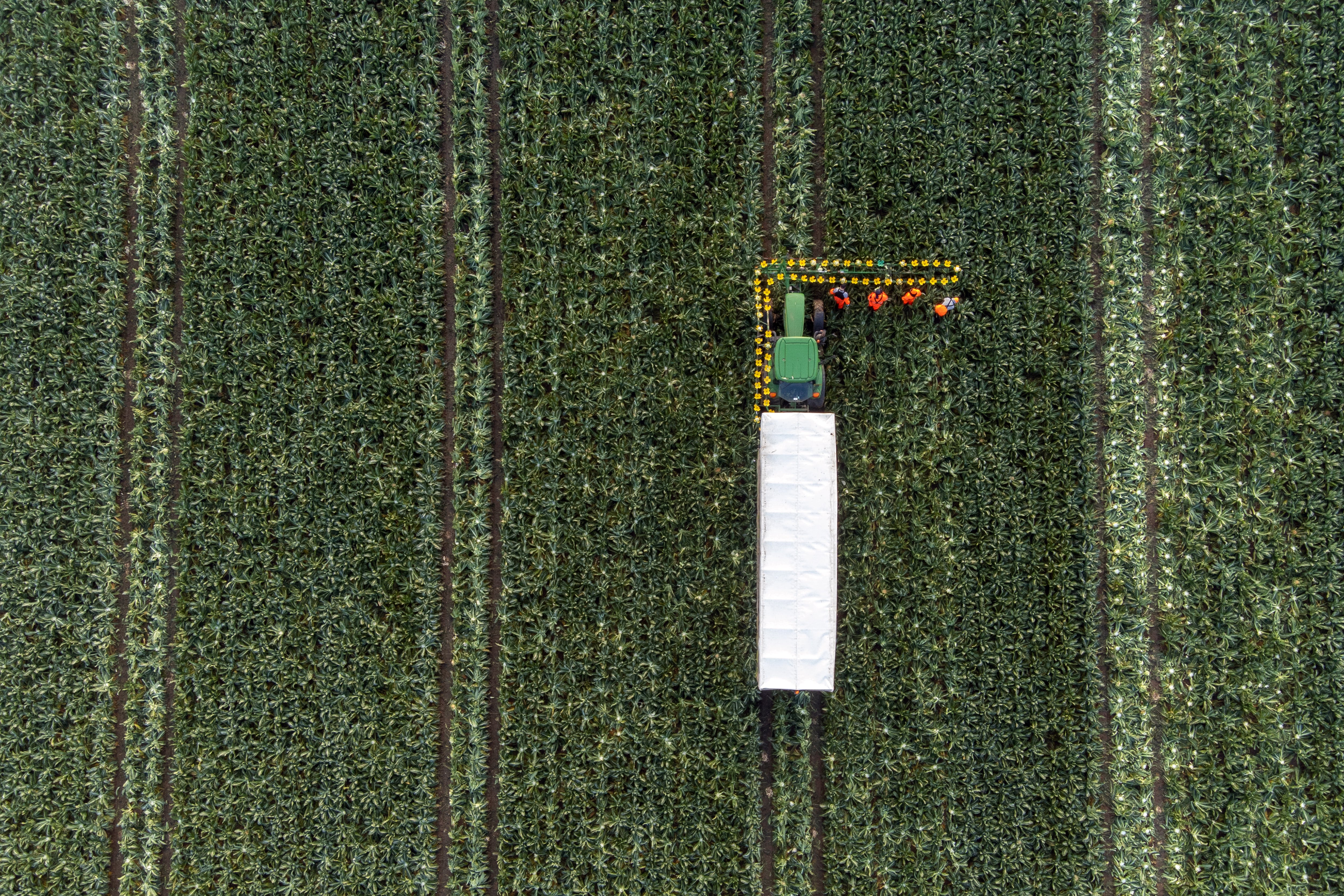Christmas cauliflowers delayed by poor growing conditions are finally harvested
A lack of cold nights in August and September delayed the growth of the brassica in the UK.

Your support helps us to tell the story
From reproductive rights to climate change to Big Tech, The Independent is on the ground when the story is developing. Whether it's investigating the financials of Elon Musk's pro-Trump PAC or producing our latest documentary, 'The A Word', which shines a light on the American women fighting for reproductive rights, we know how important it is to parse out the facts from the messaging.
At such a critical moment in US history, we need reporters on the ground. Your donation allows us to keep sending journalists to speak to both sides of the story.
The Independent is trusted by Americans across the entire political spectrum. And unlike many other quality news outlets, we choose not to lock Americans out of our reporting and analysis with paywalls. We believe quality journalism should be available to everyone, paid for by those who can afford it.
Your support makes all the difference.Half a million cauliflowers that flowered too late for Christmas are to be sold at a reduced rate from January, following “some of the worst growing conditions for many years”.
British retailers had to import the vegetables from France and Spain to meet festive demand as a lack of cold nights in August and September delayed the growth of the brassica in the UK.
Supermarket Tesco has pledged to help manage the surplus and has bought an extra 500,000 cauliflowers from grower TH Clements, based near Spalding in Lincolnshire.
The cauliflowers, which are finally being harvested, will be sold for 49p each instead of the regular 79p price for the next two weeks.
Richard Mowbray, commercial director at TH Clements, said: “We had some of the worst growing conditions for many years and it’s hit us really hard as we missed out on the big Christmas market.
“The cauliflower is a cool weather vegetable and the season started badly in August and September as we didn’t get any cold nights, which are important for growth.
“The plants did not flower at the right time, which is the end of October and beginning of November.
“Instead they started flowering in December meaning they were a month behind schedule.
“Now we have a large surplus of cauliflowers and some of these would be going to waste had Tesco not stepped in to help.”
Tesco produce buying manager Sam Miller said: “Cauliflower is one of the festive vegetables that is extremely popular with Christmas dinner and as a result we order much more for December.
“Back in November we heard that our suppliers were not going to be able to meet our orders as a result of the crop failure causing severe issues across the whole UK market.
“But the good news is that a bumper crop of British cauliflowers are now ready to go, and we were delighted to help make sure they don’t go to waste.”